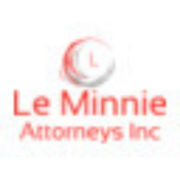Best Communications & Media Law Lawyers in Malmesbury
Share your needs with us, get contacted by law firms.
Free. Takes 2 min.
List of the best lawyers in Malmesbury, South Africa
About Communications & Media Law in Malmesbury, South Africa
Communications & Media Law in Malmesbury, South Africa refers to the set of laws and regulations governing the dissemination and regulation of information via various media channels, including print, broadcast, online, and telecommunications. This area of law covers issues such as freedom of expression, media ethics, telecommunications licensing, defamation, copyright, data protection, and the regulation of content. In Malmesbury, as a town within the Western Cape, these laws are shaped by national legislation and administered by both local and national authorities, impacting media businesses, journalists, content creators, and consumers alike.
Why You May Need a Lawyer
Individuals and businesses in Malmesbury may need legal help in Communications & Media Law for various reasons. Common situations include:
- Responding to defamation, slander, or libel claims involving newspapers, radio, TV, or online platforms
- Ensuring compliance with advertising standards and broadcasting regulations
- Negotiating contracts for media production or distribution
- Dealing with copyright infringement involving content, images, or software
- Addressing privacy issues related to media reporting or online data use
- Applying for, transferring, or disputing telecommunications licenses
- Handling complaints or disputes involving the press, broadcasters, or online platforms
- Protecting intellectual property rights in digital and traditional media
- Guidance for journalists or bloggers on lawful reporting and the limitations of press freedom
Specialist advice can help navigate the complex frameworks and protect your rights and reputation.
Local Laws Overview
Communications & Media Law in Malmesbury is governed primarily by national South African legislation, such as the Electronic Communications Act, the Broadcasting Act, the Films and Publications Act, the Copyright Act, and the Protection of Personal Information Act (POPIA). Key aspects relevant to local practice include:
- Freedom of Expression: Protected under the Constitution, but subject to limitations preventing hate speech, incitement, or defamation.
- Media Regulation: Oversight by bodies such as the Independent Communications Authority of South Africa (ICASA) and the Press Council, affecting everything from licensing to content standards.
- Broadcasting & Telecommunications: Licensing and compliance is required for radio, TV, and telecommunications providers. Unlawful operation is subject to severe penalties.
- Online Content Regulation: The Films and Publications Board (FPB) regulates online content, particularly concerning child protection and hate speech.
- Defamation and Privacy: South African law allows for civil liability in cases of defamation, including through social media. Privacy rights also protect individuals against unlawful public exposure.
- Copyright: Creators and rights holders are protected, and infringement can result in civil and criminal action.
- Advertising: The Advertising Regulatory Board oversees the standards of advertisements to prevent misleading or offensive content.
Local application of these laws in Malmesbury is often via regional offices or representatives of national bodies, with the local magistrate’s court handling civil and criminal matters.
Frequently Asked Questions
What is defamation, and how does it apply to social media posts?
Defamation is the unlawful, intentional publication of a statement to a third party that harms another’s reputation. In South Africa, defamation laws apply to both traditional media and social media; even a Facebook post or tweet can be subject to legal action.
Can I record phone conversations or meetings in Malmesbury?
South African law allows recording of conversations only if at least one party in the conversation consents. Secret recording without consent is generally illegal and can have serious legal consequences.
Are there restrictions on what can be published in the press or online?
Yes. While there is broad protection of freedom of expression, speech that constitutes hate speech, incites violence, or is defamatory, obscene, or invades privacy can be restricted or result in civil/criminal penalties.
What should I do if I am accused of copyright infringement?
Seek legal advice immediately. Copyright law is strict, and resolving disputes often requires understanding licensing, fair use, and the nature of the alleged infringement.
How are media and broadcasting licences obtained?
Licences are administered by ICASA. Applicants must meet specific requirements and follow procedures set out under the Electronic Communications Act. Legal advice can facilitate the application process.
How is personal data protected in the media and communications sector?
The Protection of Personal Information Act (POPIA) sets out strict rules on collecting, using, and storing personal data. Media organizations must comply with these obligations or risk penalties.
Can I challenge a decision by a regulator like ICASA or the Press Council?
Yes, decisions can usually be appealed internally or reviewed by a court. Consulting a specialist lawyer can help you understand your rights and options.
What steps should I take if I am threatened with a libel lawsuit?
Do not respond or admit liability without legal advice. Gather all related materials and consult a lawyer experienced in media law as soon as possible.
Are bloggers and social media influencers subject to the same rules as journalists?
Yes, many of the same legal and ethical obligations apply, including laws on defamation, copyright, and advertising standards.
Where can I complain about misleading or offensive adverts?
Complaints can be lodged with the Advertising Regulatory Board (ARB), which oversees compliance with advertising standards across South Africa.
Additional Resources
A number of organizations and bodies can assist with Communications & Media Law matters in Malmesbury and beyond:
- Independent Communications Authority of South Africa (ICASA): Regulates the broadcasting, telecommunications, and postal sectors.
- Press Council of South Africa: Handles press-related complaints and upholds journalistic ethics.
- Advertising Regulatory Board (ARB): Promotes responsible advertising and handles consumer complaints.
- Films and Publications Board (FPB): Regulates content rating and online safety issues.
- South African Human Rights Commission (SAHRC): Addresses complaints about freedom of expression and related rights.
- Local Magistrate’s Courts: For filing civil and criminal cases related to media law breaches.
- Legal Aid South Africa: Offers legal assistance for those who qualify financially.
Next Steps
If you require assistance with a Communications & Media Law matter in Malmesbury, consider the following steps:
- Clearly identify your legal issue and gather all relevant documents, correspondence, and evidence.
- Contact a qualified lawyer specializing in Communications & Media Law. Many legal practitioners in the Western Cape can help, and you may request an initial consultation to discuss your case.
- If facing regulatory action, act promptly to avoid missing important deadlines for responses or appeals.
- For lesser matters, such as advertising complaints, you can approach the relevant regulatory body directly.
- If you cannot afford a private lawyer, inquire with Legal Aid South Africa about eligibility.
- Remain cautious about making public statements regarding your case until you have obtained legal advice.
Professional legal guidance can significantly improve your chances of a satisfactory resolution and help ensure you comply with both local and national regulations in this rapidly evolving field.
Lawzana helps you find the best lawyers and law firms in Malmesbury through a curated and pre-screened list of qualified legal professionals. Our platform offers rankings and detailed profiles of attorneys and law firms, allowing you to compare based on practice areas, including Communications & Media Law, experience, and client feedback.
Each profile includes a description of the firm's areas of practice, client reviews, team members and partners, year of establishment, spoken languages, office locations, contact information, social media presence, and any published articles or resources. Most firms on our platform speak English and are experienced in both local and international legal matters.
Get a quote from top-rated law firms in Malmesbury, South Africa — quickly, securely, and without unnecessary hassle.
Disclaimer:
The information provided on this page is for general informational purposes only and does not constitute legal advice. While we strive to ensure the accuracy and relevance of the content, legal information may change over time, and interpretations of the law can vary. You should always consult with a qualified legal professional for advice specific to your situation.
We disclaim all liability for actions taken or not taken based on the content of this page. If you believe any information is incorrect or outdated, please contact us, and we will review and update it where appropriate.










